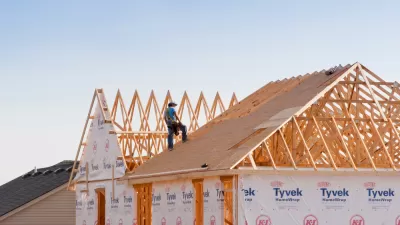The Center for Community Progress made recommendations for tax reform in West Virginia to address vacancy. Guided by CCP's suggestions, the state auditor’s office has passed two laws to change its tax sales process and keep properties in use.

West Virginia is addressing its vacancy epidemic head-on.
The state—which has one of the highest vacancy rates in the country—recently passed new regulations to help alleviate some of the negative effects vacant properties have on communities. The policies aim to help keep communities from losing properties to speculators; give neighbors, cities, and land banks an advantage in purchasing unsold property; and allow struggling homeowners to use payment plans to manage their delinquent taxes.
Senate Bill 548, which passed in June, is making a lot of buyers who purchase property at tax sales nervous, says Christal Perry, the state’s assistant director of land. When homeowners fail to pay their property taxes, the delinquent property can eventually go to a tax sale, where bidders can purchase it. The new bill requires that bidders join a registry before entering a tax sale. The registry gives officials an opportunity to examine whether a bidder has a history of mis-using property, including previous code violations or delinquent property taxes. Bidders who have these histories will no longer be able to participate in a tax sale.
LLCs can only participate after they register with the West Virginia Secretary of State.
According to the West Virginia State Auditor’s Office, out-of-state speculators—buyers who purchase property with the intent of making a profit—often buy property during tax sales to damaging effect. The office says that these buyers have made the tax sale “a root cause of slum and blight,” allowing for vacancy to increase “with no desire to turn properties into usable living spaces.”
“If [buyers are] not going to come in and be productive purchasers of those properties, then we certainly don’t want them in here purchasing property, and leaving it worse than they came,” Perry says.
FULL STORY: Full story

Maui's Vacation Rental Debate Turns Ugly
Verbal attacks, misinformation campaigns and fistfights plague a high-stakes debate to convert thousands of vacation rentals into long-term housing.

Planetizen Federal Action Tracker
A weekly monitor of how Trump’s orders and actions are impacting planners and planning in America.

In Urban Planning, AI Prompting Could be the New Design Thinking
Creativity has long been key to great urban design. What if we see AI as our new creative partner?

King County Supportive Housing Program Offers Hope for Unhoused Residents
The county is taking a ‘Housing First’ approach that prioritizes getting people into housing, then offering wraparound supportive services.

Researchers Use AI to Get Clearer Picture of US Housing
Analysts are using artificial intelligence to supercharge their research by allowing them to comb through data faster. Though these AI tools can be error prone, they save time and housing researchers are optimistic about the future.

Making Shared Micromobility More Inclusive
Cities and shared mobility system operators can do more to include people with disabilities in planning and operations, per a new report.
Urban Design for Planners 1: Software Tools
This six-course series explores essential urban design concepts using open source software and equips planners with the tools they need to participate fully in the urban design process.
Planning for Universal Design
Learn the tools for implementing Universal Design in planning regulations.
planning NEXT
Appalachian Highlands Housing Partners
Mpact (founded as Rail~Volution)
City of Camden Redevelopment Agency
City of Astoria
City of Portland
City of Laramie





























